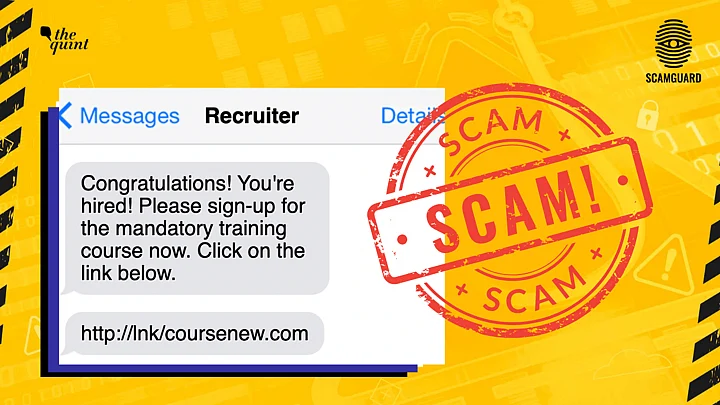The perfect job opportunity from a recruiter of a reputable company is in your mailbox or chats. Next, they arrange an interview with you, and it all goes smoothly. Later, you’re informed that you're an ideal candidate for the position. The job is almost yours, but wait. You must complete a certification course before joining the company.
Sounds doable, right? Upskilling is always a priority for companies, but slowly, the curtain rises and unveils one of the slickest job scams out there.
Let’s break down the scam to help protect you from the imposters' devious trap, which can also lead to significant financial losses.
Modus Operandi
You’ve Got Mail: Scammers posing as fake HR representatives or recruiters of a well-known company reach out via email, text messages, or job boards, informing you of the position they are considering you for. After checking with you, they set up an interview.
The Interview: A scripted interview is then conducted to assess your skills for the role. In a case reported to The Quint, the questions were unrelated to the role and appeared to be fabricated.
You’re Hired: The scammer contacts you again to inform you that you have been selected for the position. Your salary expectations are promptly agreed upon without any negotiations, and soon, you receive the offer letter.
Essential Training: Next, you are required to complete a mandatory paid certification course within the next few weeks. They tell you that the costs incurred for the course will be reimbursed once you join the company.
Registration: Scammers share a link to the course that appears legitimate, featuring a list of course modules and terms and conditions. Once you make the payment, the scammer either vanishes, blocks you, or stalls you indefinitely.
Red Flags
Recruiters pushing you to sign up for paid training and certification before you even join the company.
A too-good-to-be-true offer in which recruiters agree to your expected salary immediately.
Interviewee(s) asking questions irrelevant to the role you are being considered for.
What To Do
Pause: If a recruiter contacts you, verify the company’s details by checking their official website and LinkedIn page. Reach out to them directly using the information provided on their official page to confirm the job opening and ascertain whether the recruiter is familiar to them.
Decline: Legitimate employers do not request potential employees to register for paid certification. Do not sign up for any course until you have officially joined a company.
Cross-check: Look for inconsistencies in the offer letter, such as informal or incorrect language usage, false contact details, or formatting errors, and verify with the company’s HR department if unsure.
Report: If you were scammed or were able to spot this scam, then report the incident as soon as possible through a government portal such as Chakshu (https://sancharsaathi.gov.in/sfc/) and the national cybercrime helpline number—1930. You can also lodge a complaint with the local police station.
The Quint's Scamguard initiative aims to keep up with emerging digital scams to help you stay informed and vigilant. If you've been scammed or successfully thwarted one, then tell us your story. Contact us via WhatsApp at +919999008335 or email us at myreport@thequint.com. You can also fill out the Google form and help us take your story forward.)
(At The Quint, we question everything. Play an active role in shaping our journalism by becoming a member today.)
